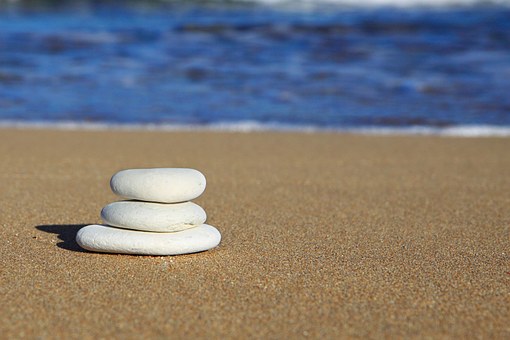We aren’t fans of telling people what they should or shouldn’t do. In fact, I’ll bet this article’s title is the only directive you’ll see on our site. We believe it doesn’t matter how you journal, when you journal, or even what tools you use. It’s okay if you type, air write, hand write, or dictate. Your journaling practice will be as unique and eclectic as you!
What matters is this: if you’ve ever been curious about journaling and have thought about giving it a try, today is the day to get started.
There are more ways than ever to kick-start your journaling practice. Our best advice is don’t get bogged down in the details. There’s plenty of time to experiment with different methods, tools, and techniques. And later on we can help with all of that. But today the only objective is to begin.
Tip 1: Cultivate Emotional Space
If you are somewhere by the sea or in a cozy mountain retreat, lucky you! Pour some tea and start writing about it!
It’s more likely that you are reading this article on a noisy commuter train, or at a sticky counter top left behind by a family member. If you wait to write when the setting is “perfect,†journaling is probably not going to happen regularly for you or even at all.
The good news is an environment conducive to journaling isn’t so much about the landscape outside your window or the paint color on your walls. Of course these qualities have value, but they are more like the icing on the cake. We don’t need them in order to engage with a meaningful journaling practice. Instead, it’s vital that we cultivate a hospitable emotional space within ourselves so that we can be open to the powers of journaling.

Everyone is different and will achieve uncluttered emotional space in unique ways, but here are ideas to start with.
- Take time. Today, before you begin, announce your intention to anyone who is around. I am taking twenty minutes to tend to something important. If you need me, I’ll be free after that. Stick with this promise. If guilt starts to rise, pay attention to those feelings and write about them.
- Close the door. This action signals your journaling practice is important and worthy of your attention.
- Turn off your phone. Just like you might for an important meeting or to read a bedtime story with your child, unplug.
- Get comfortable. Are you hungry, thirsty, cold, warm? Tend to any physical discomforts you can before you start writing.
Tip 2: Maximize Your Time
For people new to journaling, the blank page can be daunting. When words don’t flow or come immediately to mind, we grow distracted. We jump up to adjust the thermostat or fixate on an ache or pain. Just like any mindfulness technique, journaling grows easier with practice. Here are a few tips to help get your wheels turning.
- Decide what length of time constitutes a meaningful writing session to you. Twenty minutes, for example, is a reasonable goal. Set your alarm and don’t stop writing till the time has passed.
- Keep your pen moving for the allotted time, and don’t stop! Even if you are simply writing the words “I can’t think of anything to write about,†you are exercising the part of the brain you’ll want to engage with throughout your journaling practice. We call this freewriting. This form of writing taps into unconscious thoughts and brings them to the surface. People are often surprised by discoveries that surface in these moments.
- If it’s helpful, come to the session with a writing prompt. This tool can make it easier to face the glare of the blank page.
Prompts to Get You Started
- I’ve started journaling because I want to know more about____.
- I would like to use my journaling practice to help me____.
- The aspects of my life I love ____ and things that I’d like to change are ____.
Tip 3: Check In With Yourself
After you’ve finished writing, take a few minutes to check in with yourself. What challenges came up in your first journaling session? How did your body feel? Were your thoughts more focused or did your mind drift? Did you learn something new? You may even want to spend a few more minutes writing to unearth your answers.
Now schedule your next journaling session. Commit by writing down that time in your journal or planner. Honor this appointment the same way you would a get-together with a friend or an appointment at the doctor’s.
If you decide that journaling is a tool that works for you, we invite you to become a member of the Journaling.com community. Membership is free and entitles you to how-to articles like this one, interviews with journaling experts, and tips to keep your journaling practice fresh and fulfilling.